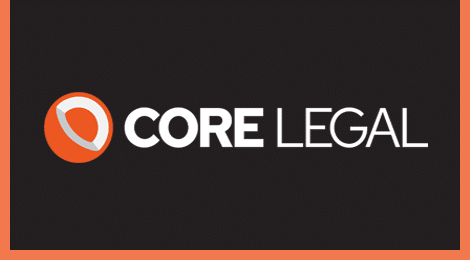The Trusts Act 2019 will come into force on 31 January 2021. The new Act replaces the Trusts Act 1956 and applies to all existing and new trusts in New Zealand.
Many New Zealand trusts were created by “mum and dad” settlors who appointed themselves as trustees (sometimes with an independent trustee) then continued to run and control their trust (and the trust assets) much as they had before the trust was established. Even trusts which had independent trustees or professional trustees often lacked “hands on” independent oversight or good trust governance.
Even well run and governed trusts will need to understand the new obligations and requirements under the new Trust Act.
The Trusts Act 2019 seeks to address some of the deficiencies in the way trusts have been administered in New Zealand. In particular, the new Act:
- Sets out the core legal principles for trusts;
- Provides default trust rules (some of which are mandatory and cannot be changed, and others that can be changed);
- Makes trusts more transparent (especially for beneficiaries);
- Increases compliance requirements for the trust and trustees. Trustees will now be required to notify any person who is a beneficiary of the trust and supply them with basic trust information.
The requirement to inform beneficiaries and provide them with information will cause concern for some trustees.
Greater scrutiny
Many trustees will have made many decisions (like making changes to trust deeds, changes in trustees, making income, capital distributions and investing) without consulting and without anyone reviewing their actions. The changes to the Act may well see a wider group of people reviewing trustee decisions (and possibly disagreeing with and/or challenging those decisions).
There is clearly the potential for more disputes.
Some trustees are sensibly reviewing their trusts (and some are considering if even having a trust is still right for them).
Trusts still have their place.
The reasons people need trusts have not changed. Protecting your core family assets from risk (such as business risk and personal liability), dealing with family assets and wealth, relationship property and inheritance issues are still relevant. Changes to the top individual tax rate could also see an increase in investments through trusts.
We also live in a world where “blended families” are more common which require careful consideration and planning under Wills and Trusts.
The New Act
The Act clarifies and imposes duties on trustees:
- To provide greater transparency of trust actions and decisions:
- To retain and store records.
- To actively disclose information to trust beneficiaries.
A major consideration for the changes was to provide greater transparency and information to beneficiaries. Trustees will have to ensure that trusts are well governed, and that trustees do their jobs properly.
Some people will be concerned about following the new rules, and others will be asking themselves if they need a trust at all.
Now is the time to review your trust affairs and make a decision – Is a trust still the right option for you and your circumstances? Do you actually need it? Have the reasons you set it up changed?
If you intend to keep your trust, you should review it now. By 31 January 2021 you must ensure that you have complied with the requirements of the new Act.
Trustees should also review their personal risk under the new Act and ask if they have the skills (and time) to perform the role.
KEY PROVISIONS AND CHANGES:
From 30 January 2021:
- Trustees must inform all beneficiaries of the trust that they are beneficiaries and that they can request basic information. This ‘basic trust information’ includes informing each person who is a beneficiary – the name and contact details of the trustee(s); the details of each appointment, removal, and retirement of a trustee; and each beneficiary’s right to request a copy of the terms of the trust or trust information.
- Trustees need to hold all the core documents and records of a trust.
- Extends the life of a trust to 125 years (currently limited to 80 years).
Compulsory duties for trustees (which cannot be changed):
- A trustee must know the terms of the trust.
- A trustee must act in accordance with the terms of the trust.
- A trustee must act honestly and in good faith.
- A trustee must deal with trust property for the benefit of the beneficiaries.
- A trustee must exercise the trustee’s powers for a proper purpose.
Optional duties for trustees (which can be changed):
- A trustee must exercise the care and skill in administering a trust that is reasonable in the circumstances.
- When investing, a trustee must exercise the care and skill that a prudent person of business would exercise in managing the affairs of others.
- A trustee must not exercise a power directly or indirectly for the trustee’s own benefit.
- A trustee must regularly review if they should be exercising one or more of the trustee’s powers.
- A trustee must not bind or commit trustees to a future exercise or non-exercise of a discretion.
- A trustee must avoid a conflict between the interests of the trustee and the interests of the beneficiaries.
- A trustee must act impartially in relation to the beneficiaries and must not be unfairly partial to one beneficiary or group of beneficiaries.
- A trustee must not make a profit from the trusteeship of a trust.
- A trustee must not take any reward for acting as a trustee, but this does not affect the right of a trustee to be reimbursed for the trustee’s legitimate expenses and disbursements in acting as a trustee.
- If there is more than one trustee, the trustees must act unanimously.
The new Act imposes a Duty for trustees to hold the following documents:
- The trust deed and any other document that contains terms of the trust;
- Any variations made to the trust;
- Records of trust property identifying the assets, liabilities, income and expenses of the trust;
- Records of trustee decisions made during the trustee’s trusteeship;
- Written contracts entered into during that trustee’s trusteeship;
- Accounting records and financial statements prepared during that trustee’s trusteeship;
- Documents of appointment, removal, and discharge of trustees;
- Any letter or memorandum of wishes from the settlor;
- Any other documents necessary for the administration of the trust;
When changes are made to the trust deed and the mandatory trustee duties, advisors must advise the settlors of those changes.
There is now a limit on trustee exemption and indemnity clauses. The terms of a trust deed must not limit or exclude a trustee’s liability for any breach of trust arising from the trustee’s dishonesty, wilful misconduct, or gross negligence.
Some trust deeds amend or exclude these default duties. For example, allowing a trustee to exercise powers for their own benefit (as in most cases the trustee is also beneficiaries). This would vary two default duties: the duty not to exercise powers for their own benefit; and the duty to act impartially.
Any Exclusions or Variations of the default duties must be specific and explicit in new trusts deeds. Trustees of existing trusts must also follow the default duties unless specifically excluded by their trust deed.
The new Act requires the compulsory removal of a trustee who loses capacity to act as a trustee. The Act provides better options for the removal of trustees who lack capacity, which can avoid the costly process of seeking orders from the High Court.
The Act also changes a number of operational matters, such as:
- The age of majority is now 18 (rather than 20).
- The maximum term of a trust is extended from 80 to 125 years (this does not extend automatically for existing trusts).
- A trustee wanting to retire must seek a discharge in writing from the person with the power to remove trustees. A trustee is not discharged from liability by simply giving notice of resignation.
The courts can now review trustee decisions on the application of a beneficiary on the basis that the trustee’s decision was ‘not reasonably open to the trustee in the circumstances’. Where a beneficiary establishes a ‘genuine and substantial dispute’, the burden of proof will fall on the trustee.
WHAT DOES THIS ALL MEAN FOR YOU?
The changes are nearly upon us (whether we want them or not). There is no need to panic. Many of the changes reflect how many trustees already run their trusts. All trustees should make sure they are ready to comply with the Act’s new requirements when they take effect. Trustees should:
- review the terms of their trust documents to ensure they will comply with the requirements of the Act. In particular, they should review the default and mandatory trustee duties (and consider if any amendments are required);
- ensure that all trustees hold the required trust records;
- decide what information should (or must) be supplied to beneficiaries;
- consider if any current classes of, or specific, beneficiaries should be removed from the Trust;
- ensure that trustees have an investment strategy (and record that investment strategy); and
- schedule regular meetings.
Professional advisors may assist you with this process and recommend that you change or exclude one or more of the default duties. If they do recommend changes, they must make sure that you understand the effect of the change.
CONCLUSIONS
For well-run trusts with active trustees the changes will cause little concern. For others these changes will be unwelcome. The increased requirement for transparency is deliberate and will influence the decision of some settlors/trustees as to whether they should continue with the trust or not.
The core reasons for needing a trust have not changed however, those who still need a trust will need to ensure they are aware of these new obligations and that they are ready to comply with the Act’s new requirements.
Whether you wish to consider if your trust is still right for you, or you just want to make sure your trust will comply with the new rules, it is important that you act now and review your trust deed and trust documents.
If you require any help reviewing your trust deed and trust arrangements, our team is ready to help. You can contact Jonathan Tanner jonathan@corelegal.co.nz or Kathryn Jorgensen kathryn@corelegal.co.nz for further assistance.
The time to act is now!
Need a bit of legal assistance? Contact a Corelegal team member today and learn more about our legal services. You won’t regret it.
Aside from family law, we are commercial lawyers Wellington who offer legal services to help you.
You can click here to speak to a commercial lawyer and family law firm. We will give you a call to know more about your needs. We will explain to you how we can improve your affairs.
Lawyer Masterton | Commercial Lawyer Wellington | Asset Planning Lawyer | Wellington Property Lawyer | Wellington Relationship | Property Lawyer
Contact
Address: Level 1,
109 Chapel Street,
Masterton 5840
Phone: +64 800 778 952


